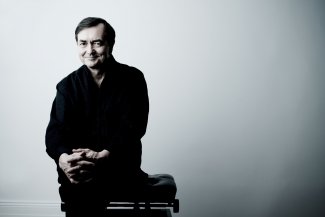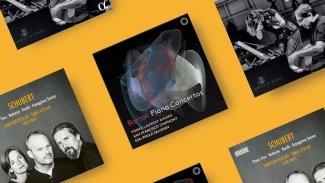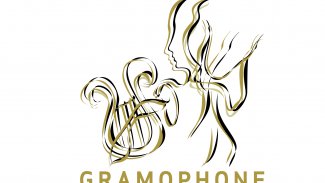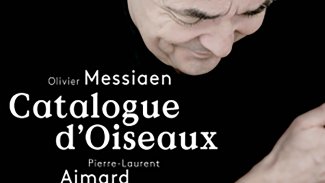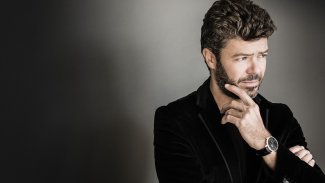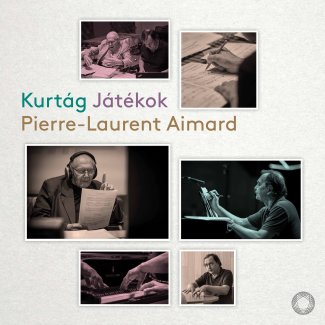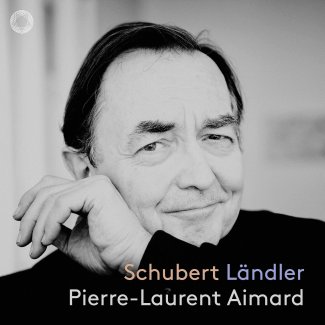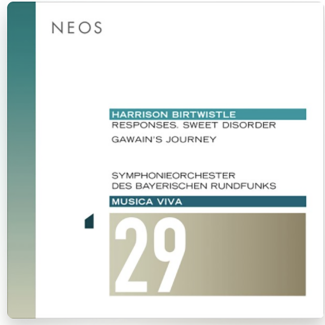
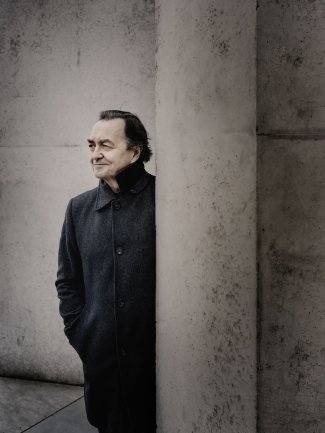
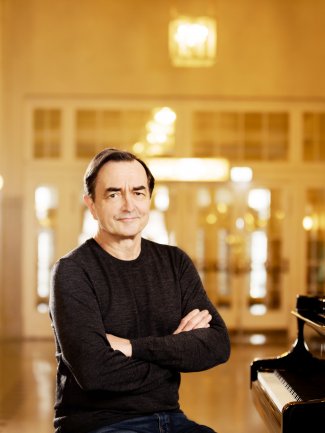

Pierre-Laurent Aimard
“To listen to Aimard in action is to feel the gears of a composition mesh in new ways. It’s to hear the urgency and beauty in music that might otherwise sound grating or remote.”
Joshua Kosman, San Francisco Chronicle, June 2022
“A brilliant musician and an extraordinary visionary” (Wall Street Journal), Pierre-Laurent Aimard is widely acclaimed as an authority on music of our time while also recognised for shedding fresh light on music of the past.
In the 2025/26 season, Pierre-Laurent celebrates the 100th birthday of his longtime friend and collaborator György Kurtág with recitals at the Budapest Music Centre, Philharmonie Luxembourg and as part of his residency with Madrid’s Centro Nacional de Difusión Musical. J. S. Bach’s Well-Tempered Clavier Vol.2 also constitutes a programme mainstay throughout the season surrounding the release of the album in October 2025, which follows 11 years after the success of Vol.1. Scheduled performances include Concertgebouw Amsterdam, London’s Southbank Centre, Konzerthaus Dortmund, Stockholm Konzerthaus, Seattle Benaroya Hall, Chamber Music Detroit and Boston Celebrity Series. Aimard’s extensive recital schedule also includes the Louvre, NTCH Taipei, NCPA Beijing and Shanghai Concert Hall. With orchestra, Aimard makes solo appearances across the season with the New York Philharmonic, Rundfunk-Sinfonieorchester Berlin, Symphonieorchester des Bayerischen Rundfunks, Stuttgart Kammerorchester, Hamburg Symphoniker, NDR Radiophilharmonie, Concerto Budapest, Barcelona Symphony Orchestra, Orquestra Sinfônica do Estado de São Paulo, Westdeutscher Rundfunk, Singapore Symphony and Seoul Philharmonic.
Show More
Aimard has enjoyed close collaborations with leading composers, including Helmut Lachenmann, Elliott Carter, Harrison Birtwistle, György Kurtág, Karlheinz Stockhausen, Marco Stroppa and Olivier Messiaen, and given many notable premieres; most recently DIVISONS for four hands by George Benjamin at Berlin’s Boulez Saal, which he repeats in the 2025/26 season at 92NY, the Library of Congress in Washington, and London’s Wigmore Hall. He also continues his associations with regular chamber music partners, most notably Isabelle Faust, Jörg Widmann and Jean-Guihen Queyras, touring Amsterdam’s Muziekgebouw, Kölner Philharmonie, Konzerthaus Wien, Elbphilharmonie Hamburg, and Madrid’s Auditorio Nacional with Messiaen’s Quartet for the End of Time.
In 2025 Aimard released Kurtág: Játékok. The latest in a series of critically acclaimed collaborations with Pentatone, it was awarded five stars by BBC Music Magazine. It follows Schubert: Ländler (2024), the complete Bartók Piano Concertos with Esa-Pekka Salonen and San Francisco Symphony Orchestra (2023), Visions de l’Amen (2022) recorded with Tamara Stefanovich, Beethoven’s Hammerklavier Sonata & Eroica Variations (2021), and Messiaen’s magnum opus Catalogue d’oiseaux (2018), which garnered multiple awards, including the German Record Critics’ Award.
Aimard is widely recognised as an innovative curator and uniquely significant interpreter of piano repertoire from every age. Previous residencies include the complete cycle of Beethoven’s piano concertos for Musikkollegium Winterthur and ground-breaking projects at Porto’s Casa da Musica, New York’s Carnegie Hall and Lincoln Center, Konzerthaus Vienna, Alte Oper Frankfurt, Lucerne Festival, Mozarteum Salzburg, Cité de la Musique in Paris, Tanglewood Festival, the Edinburgh Festival, and as Artistic Director of the Aldeburgh Festival from 2009 to 2016.
The recipient of many prizes, Aimard was awarded the prestigious International Ernst von Siemens Music Prize in 2017 in recognition of a life devoted to the service of music and the Leonie Sonning Music Prize, Denmark’s most prominent music award in 2022. A member of the Bayerische Akademie der Schönen Künste, Aimard has held professorships at the Hochschule Köln and was previously an Associate Professor at the College de France, Paris. In spring 2020, he re-launched a major online resource in collaboration with the Klavier-Festival Ruhr, Explore the Score, which centres on the performance and teaching of Ligeti’s piano music.
Contacts
Jasper Parrott Executive Chairman HP Group & Associated Companies Ariane Levy-Künstler EOT Director | Director, Artist Management
Worldwide General Management
Ariane Levy-Künstler EOT Director | Director, Artist Management
Worldwide General Management
Worldwide General Management
Gallery



Season Highlights
Musikverein Wien
Show more about Musikverein Wien
PIERRE BOULEZ: Sonata for Piano No.1
PIERRE BOULEZ: Notations
Barbican Centre
Show more about Barbican Centre
BEETHOVEN : Piano Concerto No.1
Southbank Centre
Show more about Southbank Centre
Excerpts from Jeux d'eau & Valses nobles et sent.
Tombeau de Couperin:
1. Prélude
3. Forlane
6. Toccata
Miroirs:
1. Noctuelles
4. Alborada del gracioso
5. La vallée des cloches
Gaspard de la nuit
1. Ondine
2. Le gibet
3. Scarbo
MAURICE RAVEL: Jeux D'eau
MAURICE RAVEL: Valses nobles et sentimentales
MAURICE RAVEL: Le Tombeau de Couperin (solo piano), I. Prélude, III. Forlane, VI. Toccata
MAURICE RAVEL: Miroirs, 1. Noctuelles, 4. Alborada del Gracioso, 5. La vallée des cloches
MAURICE RAVEL: Gaspard de la Nuit, M. 55, I. Ondine, II. Le Gibet, III. Scarbo
Leipzig Gewandhaus
Show more about Leipzig Gewandhaus
BÉLA BARTÓK: Sonata for Piano, BB 88, Sz. 80
CLAUDE DEBUSSY: Étude 3 pour les quartes
CLAUDE DEBUSSY: Étude 11 pour les arpèges composés
PIERRE BOULEZ: Structures, deuxième livre for two pianos
OLIVIER MESSIAEN: Visions de l’Amen
Show more season highlights
Museo Nacional Centro de Arte Reina Sofia
Show more about Museo Nacional Centro de Arte Reina Sofia
MAURICE RAVEL: Miroirs
PIERRE BOULEZ: Sonata for Piano No. 1
PIERRE BOULEZ: Incises for piano
MAURICE RAVEL: Gaspard de la Nuit, M. 55
Théâtre des Champs-Elysées
Show more about Théâtre des Champs-Elysées
MAURICE RAVEL: Gaspard de la Nuit, M. 55
MAURICE RAVEL: Miroirs
MAURICE RAVEL: Le Tombeau de Couperin
Leipzig Gewandhaus
Show more about Leipzig Gewandhaus
PIERRE BOULEZ: Éclat for 15 instruments
MAURICE RAVEL: Concerto for Piano in G major
Interval
BÉLA BARTÓK: The Wooden Prince: Suite
Walt Disney Concert Hall
Show more about Walt Disney Concert Hall
BÉLA BARTÓK: Concerto for Piano No. 3
The Granada Theatre
Show more about The Granada Theatre
BÉLA BARTÓK: Concerto for Piano No. 3
Festspielhaus Baden-Baden
Show more about Festspielhaus Baden-Baden
PIERRE BOULEZ: Sonata for Piano No. 3
ARNOLD SCHOENBERG: Five Pieces, Op.23
ANTON WEBERN: Variations for Piano, Op. 27
CLAUDE DEBUSSY: Études (complete)
MAURICE RAVEL: Miroirs
Klavier-Festival Ruhr
Show more about Klavier-Festival Ruhr
MAURICE RAVEL: Sites auriculaires
GEORGE ENESCU: Suite No. 3, Op.18: VII Carillon nocturne
OLIVER KNUSSEN: Prayer Bell Sketch, Op.29
HARRISON BIRTWISTLE: Keyboard Engine
OLIVIER MESSIAEN: Visions de l’Amen
Klavier-Festival Ruhr
Show more about Klavier-Festival Ruhr
OLIVIER MESSIAEN: Quatuor pour la fin du temps
Consorcio Festival Internacional de Música y Danza de Granada
Show more about Consorcio Festival Internacional de Música y Danza de Granada
OLIVIER MESSIAEN: Catalogue d'oiseaux
Stiftung Mozarteum
Show more about Stiftung Mozarteum
Boulez 12 Notations
Debussy 4 Etüden (andere als die , die ich in 2022 gespielt habe)
Boulez 1. Sonate
Ravel aus Miroirs , Oiseaux tristes , Noctuelles und La vallée des cloches
Boulez Incises
Messiaen 4 Etudes de rythme
PIERRE BOULEZ: Douze Notations for piano
CLAUDE DEBUSSY: Douze études pour piano
PIERRE BOULEZ: Sonata for Piano No. 1
MAURICE RAVEL: Miroirs, 1. Noctuelles, 2. Oiseaux Tristes, 5. La vallée des cloches
PIERRE BOULEZ: Incises for piano
OLIVIER MESSIAEN: Quatres Etudes de Rhythme
Stiftung Mozarteum
Show more about Stiftung Mozarteum
JOHANN SEBASTIAN BACH: The Well-Tempered Clavier Book II
“The composer could not have wished for a better, more sensitive, more precise interpreter.”
“Aimard is able to shape every nuance in such a way that one never grows tired of listening […].”
“One of the most important albums of this year” *****
“Crystalline, pointed in his touch, expressive in his expression and masterly in his exploitation of dynamic nuances. […] A musical gift.”
“[Aimard’s] playing bears the master’s whole-hearted imprimatur.” *****
“Essential [;] you hear a composer revelling in what can be achieved […], and how vividly a dedicated performer can make it all come to life.”
“lucid and masterful”
“Each piece sound special, finely graded in many facets”
“Játékok is one of the major achievements of the last half century, and Aimard is the perfect guide to it.”
“Musical poetry with simple means, wonderfully original, infinitely charming — and Aimard is of course the ideal pianist”
“Dazzling dexterity, balancing muscularity in the cadenza with a delicate dreaminess”
“There’s still only one Pierre-Laurent Aimard. […] one of the finest keyboard artists of our day”
“The technical assurance of his playing is beyond reproach, [and] the intelligence and discernment of his programmes […] have been instrumental in helping to fashion a new canon of core repertoire for the twenty-first century.”
“Aimard’s performance found both body and sound in a state of concentrated tension, moving from introspective stasis to sudden flurries of impassioned gestures. […] spellbinding.”
“Superlative playing… [Aimard] is clearly a musician in demand. From this performance, it is not hard to see why.”
“Aimard find something special every time” — Performance***** | Recording*****
“A thrilling performance, played with absolute authority.”
“Pierre-Laurent Aimard is such an artist. He’s made a specialty of some of the thorniest music by such 20th-century modernists as Pierre Boulez and Elliott Carter, and he casts them in a continuous tradition with Beethoven and Schubert — music he also plays superbly.”
“Thrilling […] a véritable fireworks display”
“Clean textures and effortless fluency […] deft precision […] Contrapuntal clarity and rare lightness of touch.”
“An extraordinary experience — beautiful, profoundly intelligent, and fun.”
“Aimard was near-phenomenal”.
“A tremendous performance”
“Probably today’s finest exponent of contemporary music for [the piano].”
“A redoubtable exponent of twentieth century piano music of the more adventurous
Kind.”
“Exhilarating in the extreme”
“Superb”
“A superbly recorded disc. Everything is clear, weighted, precise, fluent, revelatory.”
“What a rich, glowing and magical overall sound!”
“[Aimard] kept the audience transfixed to the end.”
“Exceptional musicality […] crystalline clarity and razor-sharp articulation.”
“Inspired”
“Recitals by Pierre-Laurent Aimard are never going to be less than fascinating.”
“Tremendous. […] Aimard’s hands began to fade into a barely visible blur as he tore through the maniacally paced passagework.”
“I consider him the most perfect interpreter of Messiaen in recent decades […]: spectacular.”
“Superb” ★★★★★
“A terrific disc. Unmissable”
“To grasp the full scope of Bartók’s piano music, in all its gritty lyricism and angular, percussive splendour, it helps to have an artist on hand like the French keyboard virtuoso Pierre-Laurent Aimard. Sometimes it can even feel indispensable
Aimard, and particularly his distinctive gift for the craggier corners of the piano repertoire, is the key to this undertaking. He’s a performer of obvious technical prowess, who throws himself into the virtuoso aspects of a work without letting it crowd out other elements. He boasts a keyboard touch that is somehow both steely and delicate, like an iron fist inside a velvet glove.”
“What distinguishes Aimard’s account — this goes, too, for the far from meagre ‘filler’, the exuberant Eroica Variations — is that it is free from idiosyncrasy, so that one spends no energy in noting his negotiation of the huge spans of three of the movements, but remains wholly absorbed in Beethoven’s shocking and alarming creation.”
“Aimard is entirely at home in a work he’s played many times and his crystalline performance here was dynamically alert, rhythmically incisive, and sensitively integrated with the delicate textures of Ravel’s bravura orchestration”
“But the most remarkable feature of Aimard’s playing is the consistency of his technique. In each movement, an unbroken fabric of piano sound is immediately established, frenetic in the first movement, legato in the second, prickly in the third, over which Aimard can then add his expressive insights.”
“Another old friend, the pianist Pierre-Laurent Aimard, was the soloist in Ravel’s G major Concerto. Benjamin and the orchestra set the tone of the performance with effervescently transparent textures, while Aimard’s playing had the hard-edged sparkle of cut glass. And to complete the belated birthday homage, his encore was Benjamin’s Relativity Rag, which deconstructs a two-part rag into shards of chromaticism, before reassembling the bits into a brief reminder of the original, with its tongue always firmly in its cheek.”
“In other words, Aimard brings this music blazingly, resoundingly to life.”
“But Mr. Aimard’s overarching agenda, connecting Beethoven’s music, in his 250th birthday year, to strands of 20th-century modernism, came through with clarity, attesting to the strength of his vision and the savvy of his juxtapositions…The roiling, abrupt ending of the “Moonlight” led, without pause, to the dark, wet sounds — like the autumn leaves I was crushing underfoot — of another section from Messiaen’s “Oiseaux,” “La Chouette Hulotte” (“The Tawny Owl”). The ferocious ending of Beethoven’s “Appassionata” Sonata was immediately followed by the similarly pounding opening chords of Stockhausen’s “Klavierstück IX.”
“This was Beethoven the eternal modern and revolutionary in all his fire and glory… Aimard’s most telling effects lay in his mastery of grinding dissonances, a turbulent flow and the madcap whirl of fleeting quotations from American hymns, patriotic songs and Ives’s catalogue…. Above all, as in the Hammerklavier, Aimard continually nurtured the sonata’s long span, embracing the composer’s disruptive power while respecting the need for elements to build; for the music, however chaotic, to make “sense”. Without that structural strength, the audience surely wouldn’t have clapped so loudly, or felt so uplifted and transformed.”
“1808 Reconstructed never attempted to mimic “period” styles, but with Aimard you could sense the desire to capture something of the suspenseful excitement of Beethoven’s own performances… we had an elegant attack and clean-limbed articulation, rising to a spiky, angular urgency in the first-movement cadenza. If the ghostly figures of the Andante lacked a little mystery, the closing rondo leaped and twirled with ravishing lucidity and perfectly-judged balance between piano and orchestra.”
“Aimard, a true aristocrat, offered playing of great clarity gilded with a tasteful sense of rubato. His touch was lightness itself when called for. At other times he gripped the lip of the piano with his left hand to lend weight to earth-shattering runs in the right.”
“This was playing of jaw-dropping virtuosity, infused with that ineffable quality that raises less than one-in-a-hundred musical experiences into the realm of the sublime.”
“Aimard and Stefanovich muted those doubts, building up a cathedral out of stained-glass colours, piano tracery, rhythmic vaults, and thick trunks of sound. A Messiaen chord is a crystalline, faceted thing, full of internal symmetries that shimmer and glint. Just one would be enough to contemplate for a while, a snowflake on a fingertip. Instead, they come in flurries, piling up before your ear. […] To hear them play Visions is like listening with superpowered ears, each detail magnified and limpid, and at the same time arranged into an expressive structure.”
“He had you running to keep up with polyrhythmic complexities, the hyperactive layering of material, the fleeting moments of congruence and dispersal, and the mind-bending invention. You wonder how anyone can get the notes under two hands, then wonder all the more that all these elements combine to go to the heart of modernism, presenting extremes of tragedy, desperation, bafflement, fantasy and alienation, all expressed in a ferocious humanity. The Queen Elizabeth Hall was packed for Aimard’s miraculous exposé of human and instrumental engineering.”
“The masterly French musician divided his recital Tuesday night at the University of Chicago’s Logan Center between Beethoven’s Opus 106 and a selection of piano pieces by the great Hungarian modernist Gyorgy Ligeti that pose formidable technical and intellectual demands of their own. It was in every respect a triumphant conclusion to this season’s University of Chicago Presents Ligeti series, a series built around the participation of Aimard, who was Ligeti’s preferred interpreter of his keyboard works […] What Aimard delivered was deeply satisfying, a “Hammerklavier” those lucky enough to hear it will long remember.… Aimard is among the greats of his generation.“
“It was a wonderfully intelligent performance, which carefully probed the deeper resonances of a work that some still perceive as flippant. Aimard dazzled with his dexterity in the outer movements, but the strikingly weighty tone he adopted for the adagio exposed a streak of dark, troubling melancholy beneath the wistful surface poise.”
“…stunned into silence by the level of compositional invention and the surpassing artistry required to convey it….. Aimard’s prodigious technique allows you to hear not the work behind the work of art but its poetry…Aimard’s performance had extraordinary power and clarity, undimmed throughout. It also had the requisite range of shades and tints, without a trace of self-indulgence or overdone sentiment.”
“At once mystic and blatantly sensual, the work is coloured by the performing styles of its creators: Aimard took Messiaen’s original role with its weight and emotional insistence, while Stefanovich tackled the volatile and immensely taxing music composed for Loriod. Both pianists bring impeccable precision and clarity to Messiaen and the result was at once both profoundly intimate and monumental, as austerity gave way to sensuousness, before the cycle culminated in the cosmic grandeur and ecstasy of the final Amen de la consummation. It was quite simply impossible to imagine it better done.”
“He powered his way through it with a combination of commitment and deep sincerity, breathtakingly realising the sensuousness with which Messiaen conveys his metaphysical vision. A devotional serenity pervaded both the opening Regard du Père and the penultimate Je Dors, Mais Mon Coeur Veille, … Towards the end, Aimard seemed not so much to be playing the music as living it. … The final phrases plunged into an awestruck silence that seemed to last forever before the applause began.”
“This is manifestly a great work, and Aimard’s stupendous technique, remorseless energy and fanatical…passion, were wondrous to encounter.”
“Pierre-Laurent Aimard was the unfussily stylish soloist in Couleurs de la cité celeste. … Beautifully voiced brass chorales were punctuated here by coruscating solos from Aimard.”
“Aimard has a level of command and understanding to which resistance is futile. … With its extravagant imagery and hallucinatory narrative, this had been the musical equivalent of the Book of Revelation, and Pierre-Laurent Aimard was its high priest.”
“Yet the even more intense experience came with Ligeti’s Piano Concerto, with the festival’s artistic director Pierre-Laurent Aimard as the formidable soloist. Every facet of this score emerged with the utmost clarity and immediacy: its tantalising polyrhythms, its luminosity, its haunting quality, and finally, its hell-for-leather finale.”
“Chiselled and glittering, Pierre-Laurent Aimard’s piano cascades and avian flights knocked us sideways.”
“It was hard to imagine Ravel’s wrist-wrecking and finger-crunching solo part being better played than this.”
We use cookies to offer a better website experience.
